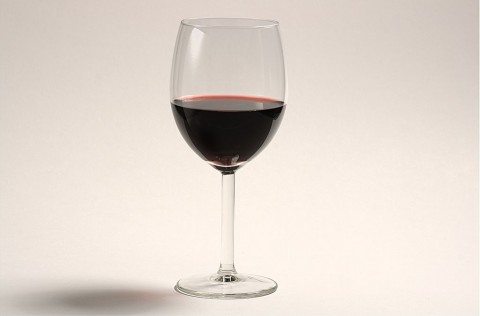A Book of Verses underneath the Bough,
A Jug of Wine, a Loaf of Bread–and Thou
Beside me singing in the Wilderness–
Oh, Wilderness were Paradise enow!”
– The Rubaiyat of Omar Khayyam
Alcoholic beverages have always inspired strong opinions pro and con. Omar Khayyam included wine in his vision of Paradise; Carrie Nation took a hatchet to saloons. Humans have been drinking alcoholic beverages for at least 12,000 years. In earlier eras beer and wine were dietary staples that provided essential calories and were safer to drink than water. Early cultures worshipped wine deities; today, some religions ban all forms of alcohol while others embrace red wine as an essential part of a holy sacrament. Alcoholic beverages are widely used as an accompaniment to meals and as a social lubricant (as Ogden Nash put it, “Candy is dandy, but liquor is quicker”). Prohibition didn’t work.
It’s always good when opinions can be backed up by scientific evidence. Those who drink, especially wine lovers, can bolster their personal preference with the evidence from recent studies showing that moderate alcohol consumption prolongs life and improves health in various ways. Those who prefer not to drink are being told they can get the same benefits from resveratrol, a component of red wine. Just how good is the evidence, and what does it really tell us?
Benefits of alcohol
According to this website, there is evidence that drinking wine provides the following health benefits:
- Promotes longevity
- Reduces heart attack risk
- Reduces risk of heart disease
- Reduces risk of Type 2 diabetes
- Lowers risk of stroke
- Cuts risk of cataracts
- Cuts risk of colon cancer
- Slows brain decline
This sounds very encouraging. Are they reasons to rush out and buy stock in a vineyard or build a wine cellar? To make you start drinking if you don’t already? To make you buy resveratrol supplements to get the benefits of wine without the intoxication?
Risks of alcohol
Maybe you shouldn’t jump on the bandwagon just yet. According to another website, there is evidence for an even longer list of health problems caused by alcohol:
- Anemia
- Cancer
- Cardiovascular disease
- Cirrhosis of the liver
- Dementia
- Depression
- Seizures
- Gout
- High blood pressure
- Infectious disease
- Nerve damage
- Pancreatitis
That list is incomplete, leaving out things like fetal alcohol syndrome. And what about the social costs of drunkenness, alcohol-fueled violence, addiction, and accidents?
The research
Wine and other alcoholic beverages have been used for medicinal purposes throughout history, but modern science-based interest began with the discovery of the French paradox. Researchers studying risk factors for coronary disease discovered that after controlling for known risk factors, heart disease was less common in France than in the US; it was proposed that the much larger consumption of red wine in France might explain the difference. The average annual consumption of red wine was 60-70 liters in France compared to 5-10 liters in the US.
Just how credible is the research supporting the claims of health benefits? Does it extend to drinking beer and other forms of alcohol, or just red wine? If moderate intake is beneficial, how much is enough to get the benefits? Let’s take a closer look.
Some people decry the use of Wikipedia as a source, but in this case the Wikipedia article on the long-term effects of alcohol consumption is an excellent place to start. It provides an exhaustive overview of the research on alcohol with plenty of citations. I’ll try to summarize what we know.
There is considerable high-quality evidence that moderate drinkers live longer than either abstainers or heavy drinkers, but there are some caveats. The subject does not lend itself to randomized, placebo-controlled studies, so we have to rely on other, less certain kinds of evidence. That’s not a problem per se. We had the same problem in studying the health effects of smoking, but in that case we had a mountain of corroboratory evidence from various kinds of studies and basic science that led to a firm conclusion. The evidence on alcohol has not yet reached a comparable consistency or critical mass. It relies mainly on epidemiologic studies, a type of research that has a lot of drawbacks. Correlation doesn’t necessarily mean causation. We can never be sure all possible confounders have been eliminated; for instance, people who drink red wine might belong to a higher social status and have a healthier diet and lifestyle than the average nondrinker. And there are studies from non-Western cultures that found the opposite: no benefit and even possible harm from alcohol consumption. Most importantly, there is no evidence that people who don’t drink would improve their longevity if they started drinking. Or that people who do drink would decrease their longevity if they stopped drinking.
Many of the studies looked at total alcohol consumption without breaking it down into wine, beer, and other spirits. When red wine was singled out, multiple studies found it was more beneficial than other alcoholic drinks, even white wine. It was suggested that this might be due to the high polyphenol content of red wine. Antioxidant polyphenols are concentrated in the skin and seeds of the grape, which are omitted from white wine. Alcohol is a pro-oxidant, but the polyphenol content makes red wine an overall antioxidant. Older wine has a lower antioxidant capacity than younger wine. Red grape juice also contains polyphenols and shows some of the same antioxidant benefits as red wine. Polyphenols in red wine inhibit platelet aggregation; this effect is only seen when the skins and seeds are both used, so there may be a synergistic effect between different components. Polyphenols relax arteries and reduce blood pressure; this effect occurs with alcohol-free red wine but the opposite effect occurs with alcohol. The evidence for the superiority of red wine is inconsistent: some studies have indicated that other alcoholic beverages are equally beneficial.
Might it make a difference whether alcohol is a regular accompaniment to meals in a culture consuming a Mediterranean diet versus drinking in non-meal settings or with other kinds of food? That hasn’t been tested. We simply don’t know. And we’re not likely to find out, since randomized controlled trials can’t be done. We are left with guesswork based on epidemiologic studies and basic science.
The benefits and risks for cancer are not clear. Overconsumption of alcohol has been correlated with several types of cancer, and moderate consumption is correlated with a higher risk of breast cancer. One study found that red wine reduced DNA damage but alcohol alone did not. The list above of benefits includes “cuts risk of colon cancer,” citing a 2005 study showing that moderate drinkers of red wine were 45% less likely to develop colon cancer. But that is belied by a 2011 meta-analysis that found strong evidence for an association between alcohol and an increased risk of colon cancer.
Sirtuin is an enzyme associated with increased lifespan in mice but not yet verified for humans. The resveratrol in red wine is thought to increase sirtuin levels. I have written about resveratrol before. The longevity benefits of massive doses of resveratrol for obese mice are impressive, but there is little evidence that resveratrol supplements benefit humans. This 2013 review of clinical trials concluded:
The relevance of the huge output of in vitro and animal studies looking at the health benefits of RES is unclear. Scientific literature is filled with plenty of studies where unrealistic assay conditions have led to many effects and mechanisms that are far from being confirmed in humans.
As for the evidence that wine slows cognitive decline, this 2012 review shows that alcohol has both a neurotoxic and neuroprotective effect, and warns that study findings should be interpreted with caution.
Conclusion
Can (should?) alcoholic beverages be part of a healthy diet? As usual, science doesn’t give us the kind of clear-cut answers we would like.
There are known risks to heavy use of alcohol. Moderate use of alcohol has been associated with improved health and longevity; but the evidence is not entirely consistent or conclusive, and the benefits may be from components of red wine rather than from alcohol per se. Claims that the benefits of red wine can be achieved with resveratrol supplements are premature. The optimum dose of wine or alcohol has not been established.
There are plenty of reasons not to drink to excess; but there is no firm evidence-based consensus about how much is too much. In my opinion, if you don’t drink, the prospect of health benefits is not reason enough to start. If you do drink responsibly and in moderation, you can reassure yourself that the health benefits may outweigh the risks, especially if you drink red wine.


